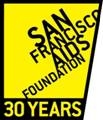New Report Highlights HIV Experts' Recommendations to Improve Gay and Bisexual Men's Sexual Health
San Francisco, February 25, 2014 - As HIV research and prevention tools advance, there remains a critical information
gap between health care providers and gay and bisexual men who could benefit most from those new tools. A new report released today
by San Francisco AIDS Foundation identifies key steps to eliminate the gap and foster better relationships and communications
between providers and clients.
"We now have more tools than ever before at our disposal to radically reduce new HIV infections, particularly among gay and bisexual
men, yet we need to make sure more men are learning about these tools so they can make the most informed decisions possible about their
sexual health," said Neil Giuliano, CEO of San Francisco AIDS Foundation. "To help advance those efforts, we brought together
many of the nation's leading HIV experts to talk about how best to improve gay and bi men's health and their health literacy."
The foundation held a two-day think tank meeting in December 2013 to develop recommendations to improve provider-client communications
for gay and bisexual men, especially within the context of pre-exposure prophylaxis (PrEP). Attendees included representatives from
the U.S. Centers for Disease Control and Prevention (CDC), Fenway Health, AIDS Foundation of Chicago, San Francisco Department of
Public Health, amfAR, and others.
The meeting created the following recommendations:
• Since the majority of HIV-negative gay and bi men are less likely to seek sexual health care services from their primary
care doctor, there is a need to explore other community health settings for PrEP delivery.
• More targeted outreach efforts are needed to educate and empower men to advocate for their own access to PrEP from their
medical providers.
• Because medical providers have limited time with clients in individual visits, they need simplified messages for discussing
PrEP and simple tools for quickly completing a PrEP risk assessment.
• Providers need more support with regard to PrEP delivery, such as screening tools, final PrEP guidelines from the CDC,
and PrEP-specific billing reimbursement codes.
• Advocates need to work together to shift the national paradigm of PrEP messaging and change current misconceptions and
pessimistic attitudes.
• More influential medical organizations and other normative bodies, such the U.S. Preventive Services Task Force, HIV
Medical Association, American Academy of Family Medicine, National Association of Community Health Centers, and other non-HIV
professional associations, need to determine and endorse a standard of care for PrEP.
"Having infectious disease specialists, community service providers, public health officials, government representatives, researchers,
and HIV prevention research advocates all at the same table was invaluable to discussing the future of gay men's sexual
health," said Judy Auerbach, senior advisor to San Francisco AIDS Foundation and think-tank
facilitator. "We agree that PrEP presents an entry point to talk about gay men's sexual
health, and even sex without condoms, in a way that is helpful and constructive and
encourages HIV-negative gay and bisexual men to be more engaged in sexual health and HIV prevention services."
As momentum around PrEP continues to build, the foundation plans to engage more providers and organizations in the conversation and to host
another think tank meeting to develop much-needed PrEP support tools and instruments for providers.
The think tank was financially supported by Gilead Sciences. To read the full report, visit www.sfaf.org/thinktank .
###
Source: http://www.sfaf.org/about-us/newsroom/media-releases/2014/gay-mens-health-recommendations.html#.UwzfQ85uAaQ

About San Francisco AIDS Foundation
No city experienced epidemic levels of HIV faster than San Francisco. At San Francisco AIDS Foundation, we work to end the epidemic where
it first took hold, and eventually everywhere. Established in 1982, our mission is the radical reduction of new infections in San
Francisco. Through education, advocacy, and direct services for prevention and care, we are confronting HIV in
communities most vulnerable to the disease. We refuse to accept that HIV transmission is inevitable.
For more information visit www.sfaf.org .
Contact:
Ryan McKeel
(415) 487-3071
rmckeel@sfaf.org
"Reproduced with permission - San Francisco AIDS Foundation"
San Francisco AIDS Foundation
For more HIV and AIDS News visit...
Positively Positive - Living with HIV/AIDS:
HIV/AIDS News
|